October 8, 2018 •
FEC Issues Reporting Guidance Following CREW v FEC
On October 4, the Federal Election Commission (FEC) issued new guidance on the reporting of political contributions made to nonprofit organizations making certain independent expenditures. The guidance, released in an FEC press release, was issued in reaction to a federal […]
 On October 4, the Federal Election Commission (FEC) issued new guidance on the reporting of political contributions made to nonprofit organizations making certain independent expenditures.
On October 4, the Federal Election Commission (FEC) issued new guidance on the reporting of political contributions made to nonprofit organizations making certain independent expenditures.
The guidance, released in an FEC press release, was issued in reaction to a federal court’s decision in CREW v FEC, which ruled a campaign finance disclosure regulation followed for decades by the FEC failed to uphold disclosure requirements required by a federal statute.
Chief Judge Beryl A. Howell of the United States District Court for The District of Columbia found the FEC regulation 11 CFR §109.10(e)(1)(vi), did not comport with the statutory disclosure requirements of 52 U.S.C. §30104(c).
The district court found the regulation impermissibly narrowed the mandated disclosure in 52 U.S.C. §30104(c)(2)(C), which requires the identification of donors contributing for the purpose of furthering the non-political committee’s own express advocacy for or against the election of a federal candidate, even when the donor has not expressly directed the funds be used in the precise manner reported.
September 27, 2018 •
US Senate Joint Resolution Seeks to Reverse IRS Disclosure Exemption for Certain Tax-Exempt Organizations
On September 24, U.S. Senators Jon Tester and Ron Wyden introduced a resolution to reverse a U.S. Treasury Department’s decision limiting IRS disclosure requirements of certain tax-exempt organizations engaging in political activities. On July 16, the U.S. Treasury Department and […]
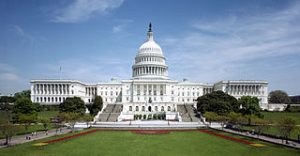 On September 24, U.S. Senators Jon Tester and Ron Wyden introduced a resolution to reverse a U.S. Treasury Department’s decision limiting IRS disclosure requirements of certain tax-exempt organizations engaging in political activities.
On September 24, U.S. Senators Jon Tester and Ron Wyden introduced a resolution to reverse a U.S. Treasury Department’s decision limiting IRS disclosure requirements of certain tax-exempt organizations engaging in political activities.
On July 16, the U.S. Treasury Department and the IRS announced certain tax-exempt organizations are no longer required to report the names and addresses of contributors on their annual reports.
This exemption from reporting applies to tax-exempt organizations generally not receiving tax-deductible contributions, such as the National Rifle Association, labor unions, volunteer fire departments, issue-advocacy groups, local chambers of commerce, veterans’ groups, and community service clubs. These organizations are still required to continue to collect and keep the donor information and to make it available to the IRS upon its request.
This exemption does not affect the information required to be reported by charities primarily receiving tax-deductible contributions, such as 501(c)(3) organizations, certain nonexempt private foundations, or 527 political organizations.
Senate Joint Resolution 64, The Spotlight Act, would overturn the exemption and require disclosure to the IRS of the names and information of donors who contribute more than $5,000.
September 24, 2018 •
California Bans Cryptocurrency Campaign Contributions
On September 20, the Fair Political Practices Commission prohibited the use of cryptocurrency in political contributions in California. The FPPC stated the anonymity of these donations would make it difficult to discern who is attempting to influence elections. This is […]
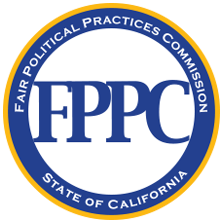 On September 20, the Fair Political Practices Commission prohibited the use of cryptocurrency in political contributions in California.
On September 20, the Fair Political Practices Commission prohibited the use of cryptocurrency in political contributions in California.
The FPPC stated the anonymity of these donations would make it difficult to discern who is attempting to influence elections.
This is contrary to the position the Federal Election Commission took in 2014, which said cryptocurrencies are in-kind property and federal candidates could accept them as a form of contribution under certain conditions.
September 18, 2018 •
U.S. Supreme Court Allows Lower Court Ruling Concerning Campaign Finance Disclosure to Remain
On September 18, a ruling invalidating a federal campaign finance regulation limiting the disclosure requirements of organizations making independent expenditures was upheld by the United States Supreme Court. The Court overruled a stay issued on September 15 by Chief Justice John […]
 On September 18, a ruling invalidating a federal campaign finance regulation limiting the disclosure requirements of organizations making independent expenditures was upheld by the United States Supreme Court.
On September 18, a ruling invalidating a federal campaign finance regulation limiting the disclosure requirements of organizations making independent expenditures was upheld by the United States Supreme Court.
The Court overruled a stay issued on September 15 by Chief Justice John G. Roberts, Jr., which had blocked a lower federal district court’s order invalidating a Federal Election Commission (FEC) campaign finance disclosure regulation. There were no dissents issued with the order.
Robert’s stay was decided on Saturday after the U.S. Court of Appeals for the District of Columbia Circuit denied an emergency motion for the stay made earlier the same day. On August 3, a federal district court had ruled a campaign finance disclosure regulation followed for decades by the FEC failed to uphold disclosure requirements required by a federal statute. Chief Judge Beryl A. Howell of the United States District Court for The District of Columbia issued an order, in CREW v. FEC, vacating 11 C.F.R. §109.10(e)(1)(vi), but stayed the vacatur for 45 days to give time for the FEC to issue interim regulations comporting with the statutory disclosure requirements of 52 U.S.C. §30104(c). The FEC has not yet replaced the rule.
The case originated because of independent expenditures made in a 2012 Ohio senate race by the non-political social-welfare nonprofit Crossroads Grassroots Policy Strategies (Crossroads GPS), an affiliate of the American Crossroads Super PAC. Crossroads GPS did not report donors when reporting its independent expenditures, while it acknowledged receiving contributions over $200, arguing the donors did not donate funds directly tied to any specific reported expenditure, as the FEC interpreted 11 C.F.R. §109.10(e)(1)(vi) to require.
Non-political committees making independent expenditures over $250 in a calendar year must comply with disclosure obligations closely analogous to those imposed on political committees. The vacated regulation required the identification of each person who made a contribution in excess of $200 to the person filing a disclosure report, including for non-political 501(c)(4) non-profit entities making independent expenditures, if the contribution was made for the purpose of furthering the reported independent expenditure.
The district court found the regulation, as construed and applied by the FEC, did not require the disclosure of donors, absent the donor’s express agreement that the funds be used for the specific expenditures reported to the FEC, even though the donor may otherwise support and in fact contribute for the purpose of funding those expenditures.
The district court found the regulation impermissibly narrows the mandated disclosure in 52 U.S.C. §30104(c)(2)(C), which requires the identification of such donors contributing for the purpose of furthering the non-political committee’s own express advocacy for or against the election of a federal candidate, even when the donor has not expressly directed that the funds be used in the precise manner reported.
September 17, 2018 •
Chief Justice Roberts Stays FEC Campaign Finance Disclosure Regulation
On September 15th, Chief Justice of the United States John G. Roberts, Jr. issued an order staying a lower federal district court’s order invalidating a Federal Election Commission (FEC) campaign finance disclosure regulation. Robert’s stay was decided on Saturday after […]
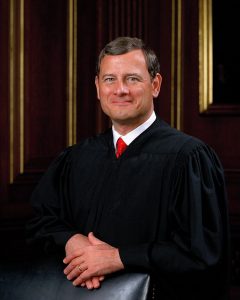 On September 15th, Chief Justice of the United States John G. Roberts, Jr. issued an order staying a lower federal district court’s order invalidating a Federal Election Commission (FEC) campaign finance disclosure regulation. Robert’s stay was decided on Saturday after the U.S. Court of Appeals for the District of Columbia Circuit denied an emergency motion for the stay made earlier the same day.
On September 15th, Chief Justice of the United States John G. Roberts, Jr. issued an order staying a lower federal district court’s order invalidating a Federal Election Commission (FEC) campaign finance disclosure regulation. Robert’s stay was decided on Saturday after the U.S. Court of Appeals for the District of Columbia Circuit denied an emergency motion for the stay made earlier the same day.
On August 3, a federal district court had ruled a campaign finance disclosure regulation, followed for decades by the FEC, failed to uphold disclosure requirements required by a federal statute. Chief Judge Beryl A. Howell of the United States District Court for The District of Columbia issued an order, in CREW v. FEC, vacating 11 C.F.R. §109.10(e)(1)(vi), but stayed the vacatur for 45 days to give time for the FEC to issue interim regulations comporting with the statutory disclosure requirements of 52 U.S.C. §30104(c). The court also has allowed the FEC 30 days to change an earlier FEC dismissal to conform with the court’s ruling.
The case originated because of independent expenditures made in a 2012 Ohio senate race by the non-political social-welfare nonprofit Crossroads Grassroots Policy Strategies (Crossroads GPS), an affiliate of the American Crossroads Super PAC. Crossroads GPS did not report donors when reporting its independent expenditures, while it acknowledged receiving contributions over $200, arguing the donors did not donate funds directly tied to any specific reported expenditure, as the FEC interpreted 11 C.F.R. §109.10(e)(1)(vi) to require. Non-political committees making independent expenditures over $250 in a calendar year must comply with disclosure obligations closely analogous to those imposed on political committees.
The vacated regulation required the identification of each person who made a contribution in excess of $200 to the person filing a disclosure report, including for non-political 501(c)(4) non-profit entities making independent expenditures, if the contribution was made for the purpose of furthering the reported independent expenditure. The district court found the regulation, as construed and applied by the FEC, did not require the disclosure of donors, absent the donor’s express agreement that the funds be used for the specific expenditures reported to the FEC, even though the donor may otherwise support and in fact contribute for the purpose of funding those expenditures.
The district court found the regulation impermissibly narrows the mandated disclosure in 52 U.S.C. §30104(c)(2)(C), which requires the identification of such donors contributing for the purpose of furthering the non-political committee’s own express advocacy for or against the election of a federal candidate, even when the donor has not expressly directed that the funds be used in the precise manner reported.
August 7, 2018 •
FEC Disclosure Regulation Invalidated by Court for Being Too Narrow
On August 3, a federal court ruled a campaign finance disclosure regulation, followed for decades by the Federal Election Commission (FEC), failed to uphold disclosure requirements required by a federal statute. Chief Judge Beryl A. Howell of the United States District […]
 On August 3, a federal court ruled a campaign finance disclosure regulation, followed for decades by the Federal Election Commission (FEC), failed to uphold disclosure requirements required by a federal statute. Chief Judge Beryl A. Howell of the United States District Court for The District of Columbia issued an order, in CREW v. FEC, vacating 11 C.F.R. §109.10(e)(1)(vi), but stayed the vacatur for 45 days to give time for the FEC to issue interim regulations comporting with the statutory disclosure requirements of 52 U.S.C. §30104(c). The court also has allowed the FEC 30 days to change an earlier FEC dismissal to conform with the court’s ruling.
On August 3, a federal court ruled a campaign finance disclosure regulation, followed for decades by the Federal Election Commission (FEC), failed to uphold disclosure requirements required by a federal statute. Chief Judge Beryl A. Howell of the United States District Court for The District of Columbia issued an order, in CREW v. FEC, vacating 11 C.F.R. §109.10(e)(1)(vi), but stayed the vacatur for 45 days to give time for the FEC to issue interim regulations comporting with the statutory disclosure requirements of 52 U.S.C. §30104(c). The court also has allowed the FEC 30 days to change an earlier FEC dismissal to conform with the court’s ruling.
The case originated because of independent expenditures made in a 2012 Ohio senate race by the non-political social-welfare nonprofit Crossroads Grassroots Policy Strategies (Crossroads GPS), an affiliate of the American Crossroads Super PAC. Crossroads GPS did not report donors when reporting its independent expenditures, while it acknowledged receiving contributions over $200, arguing the donors did not donate funds directly tied to any specific reported expenditure, as the FEC interpreted 11 C.F.R. §109.10(e)(1)(vi) to require. Non-political committees making independent expenditures over $250 in a calendar year must comply with disclosure obligations closely analogous to those imposed on political committees.
The vacated regulation required the identification of each person who made a contribution in excess of $200 to the person filing a disclosure report, including for non-political 501(c)(4) non-profits entities making independent expenditures, if the contribution was made for the purpose of furthering the reported independent expenditure. The court found the regulation, as construed and applied by the FEC, did not require the disclosure of donors, absent the donor’s express agreement that the funds be used for the specific expenditures reported to the FEC, even though the donor may otherwise support and in fact contribute for the purpose of funding those expenditures. The court found the regulation impermissibly narrows the mandated disclosure in 52 U.S.C. §30104(c)(2)(C), which requires the identification of such donors contributing for the purpose of furthering the non-political committee’s own express advocacy for or against the election of a federal candidate, even when the donor has not expressly directed that the funds be used in the precise manner reported.
May 23, 2018 •
Third Request for FEC to Consider Rulemaking Concerning Foreign Interference in Elections
At the May 24 meeting of the Federal Election Commission, Vice Chair Ellen L. Weintraub resubmitted proposals for the commission to reconsider concerning whether to engage in a rulemaking to protect future U.S. elections from foreign interference. As stated in […]
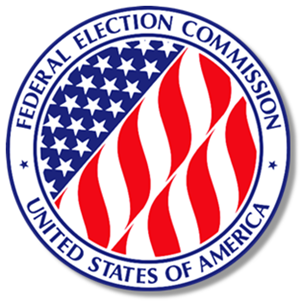 At the May 24 meeting of the Federal Election Commission, Vice Chair Ellen L. Weintraub resubmitted proposals for the commission to reconsider concerning whether to engage in a rulemaking to protect future U.S. elections from foreign interference.
At the May 24 meeting of the Federal Election Commission, Vice Chair Ellen L. Weintraub resubmitted proposals for the commission to reconsider concerning whether to engage in a rulemaking to protect future U.S. elections from foreign interference.
As stated in her May 17 memorandum to the commission, the proposals were initially brought in both September 2016 and June 2017. The impetus for her new request was a bipartisan joint statement released by Senators Richard Burr and Mark Warner, in which they both call for better efforts to combat foreign interference in federal elections.
This request to be considered at the commission’s meeting can be found here.
May 14, 2018 •
FEC Posts Examples of Proposed Internet Disclaimers
Ahead of its June 27 rulemaking hearing, the Federal Election Commission (FEC) has posted examples of internet disclaimers on its website. Currently, the FEC is accepting comments from the public concerning a Notice of Proposed Rulemaking on REG 2011-02 (Internet […]
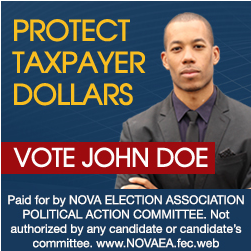 Ahead of its June 27 rulemaking hearing, the Federal Election Commission (FEC) has posted examples of internet disclaimers on its website. Currently, the FEC is accepting comments from the public concerning a Notice of Proposed Rulemaking on REG 2011-02 (Internet Communication Disclaimers).
Ahead of its June 27 rulemaking hearing, the Federal Election Commission (FEC) has posted examples of internet disclaimers on its website. Currently, the FEC is accepting comments from the public concerning a Notice of Proposed Rulemaking on REG 2011-02 (Internet Communication Disclaimers).
The proposals in the FEC notice deal with internet communications containing express advocacy, soliciting contributions, or internet communications made by political committees. The FEC says its goal “is to promulgate a rule that in its text and interpretation recognizes the paramount importance of providing the public with the clearest disclosure of the payor or sponsor of these public communications on the internet.”
The FEC notice also requests comments concerning a proposed change to the definition of “public communication.” The illustrative examples of internet disclaimers are available to view here.
May 11, 2018 •
FEC Approves Campaign Request to Use Funds for Childcare
The FEC voted unanimously 4-0 to allow New York Congressional candidate Liuba Grechen Shirley to spend her campaign funds on childcare. In her petition, she cited two cases where male candidates requested to use donor funds for limited childcare expenses. […]
 The FEC voted unanimously 4-0 to allow New York Congressional candidate Liuba Grechen Shirley to spend her campaign funds on childcare.
The FEC voted unanimously 4-0 to allow New York Congressional candidate Liuba Grechen Shirley to spend her campaign funds on childcare.
In her petition, she cited two cases where male candidates requested to use donor funds for limited childcare expenses.
The FEC ruled in an advisory opinion that Shirley’s expenses would not have existed if it weren’t for her run for office, and will therefore apply to any future candidates who may run for office.
Shirley said, “This groundbreaking decision will remove a major financial obstacle for working families and mothers at a time when women are increasingly considering elected office.”
Photo of Liuba Grechen Shirley via Facebook
April 20, 2018 •
FEC to Consider Asking for Analysis of Rules For When Quorum Not Met
On April 26, among the items the Federal Election Commission (FEC) is scheduled to consider will be a directive concerning FEC rules when the commission has fewer than four members. On April 19, Chair Caroline C. Hunter submitted a memo […]
 On April 26, among the items the Federal Election Commission (FEC) is scheduled to consider will be a directive concerning FEC rules when the commission has fewer than four members.
On April 26, among the items the Federal Election Commission (FEC) is scheduled to consider will be a directive concerning FEC rules when the commission has fewer than four members.
On April 19, Chair Caroline C. Hunter submitted a memo to the FEC stating her intent to ask the Office of the General Counsel to prepare a pubic memorandum analyzing the current laws and rules applicable when the commission has fewer than four members, the number needed for a quorum. Hunter also wants the commission to seek public comment on this issue after the Office of General Counsel’s memorandum is submitted to the FEC.
Additionally, the commission is scheduled to consider examples of internet communication disclaimers, which will be circulated at the meeting.
March 21, 2018 •
Federal Court Finds FEC Decision Concerning Outside Political Activity of Group During 2010 Elections Inconsistent with Governing Statutes
On March 20, a federal court found the Federal Election Commission (FEC) failed to interpret campaign finance laws correctly as applied to an outside group’s political activity during the 2010 federal elections. In 2012, Citizens for Responsibility and Ethics in […]
 On March 20, a federal court found the Federal Election Commission (FEC) failed to interpret campaign finance laws correctly as applied to an outside group’s political activity during the 2010 federal elections.
On March 20, a federal court found the Federal Election Commission (FEC) failed to interpret campaign finance laws correctly as applied to an outside group’s political activity during the 2010 federal elections.
In 2012, Citizens for Responsibility and Ethics in Washington (CREW) had brought a complaint to the FEC alleging American Action Network (AAN), an outside nonprofit entity that ran nearly $18 million in television advertisements just before the 2010 federal midterm elections, was a “political committee” and subject to federal disclosure requirements.
A majority of the commissioners did not find “reason to believe” that AAN violated any law and the complaint was dismissed. Crew appealed the FEC decision to the United States District Court for The District of Columbia.
Yesterday, U.S. District Judge Christopher R. Cooper found the FEC’s analysis used to determine whether AAN was a political committee “was inconsistent with the governing statutes,” granted summary judgment in favor of CREW, and remanded the matter back to FEC to address CREW’s initial complaint again.
March 19, 2018 •
FEC Now Located at 1050 First Street NE
Effective today, the office headquarters of the Federal Election Commission (FEC) are located at 1050 First Street, NE, Washington, D.C. The FEC also begins receiving all mail at this new address today. The offices of the FEC had been located […]
 Effective today, the office headquarters of the Federal Election Commission (FEC) are located at 1050 First Street, NE, Washington, D.C.
Effective today, the office headquarters of the Federal Election Commission (FEC) are located at 1050 First Street, NE, Washington, D.C.
The FEC also begins receiving all mail at this new address today.
The offices of the FEC had been located at 999 E Street since 1985.
On March 14, the Federal Election Commission (FEC) approved a draft notice for rules concerning internet communication disclaimers. Because the rules were last revised in 2006, the FEC is interested in public input about the application of those rules “in […]
 On March 14, the Federal Election Commission (FEC) approved a draft notice for rules concerning internet communication disclaimers. Because the rules were last revised in 2006, the FEC is interested in public input about the application of those rules “in light of technological advances” since then.
On March 14, the Federal Election Commission (FEC) approved a draft notice for rules concerning internet communication disclaimers. Because the rules were last revised in 2006, the FEC is interested in public input about the application of those rules “in light of technological advances” since then.
The FEC document, Reg 2011-02: Draft Notice of Proposed Rulemaking on Internet Disclaimers and Definition of “Public Communication,” states the FEC is requesting comments about two alternative proposals to amend its regulations concerning disclaimers on public communications on the internet. The proposals in the FEC notice deal with internet communications containing express advocacy, soliciting contributions, or internet communications made by political committees.
The FEC says its goal “is to promulgate a rule that in its text and interpretation recognizes the paramount importance of providing the public with the clearest disclosure of the payor or sponsor of these public communications on the internet.” The FEC notice also requests comments concerning a proposed change to the definition of “public communication.”
Comments must be received on or before 60 days after date of publication in the notice in the Federal Register, with a public hearing to follow on June 27, 2018.
February 26, 2018 •
FEC Moving to New Location in March
In March, the Federal Election Commission (FEC) begins the process of moving from its current location in Washington, D.C. at 999 E Street, NW, to its new location at 1050 First Street, NE. On March 19, the FEC will begin […]
 In March, the Federal Election Commission (FEC) begins the process of moving from its current location in Washington, D.C. at 999 E Street, NW, to its new location at 1050 First Street, NE.
In March, the Federal Election Commission (FEC) begins the process of moving from its current location in Washington, D.C. at 999 E Street, NW, to its new location at 1050 First Street, NE.
On March 19, the FEC will begin receiving mail at the new address, according the commission’s weekly digest published on its website on February 23. The FEC was originally scheduled to begin receiving mail at its new address on March 5, 2018, as published in the in the Federal Register on December 26.
The offices of the FEC have been located at 999 E Street since 1985.
State and Federal Communications, Inc. provides research and consulting services for government relations professionals on lobbying laws, procurement lobbying laws, political contribution laws in the United States and Canada. Learn more by visiting stateandfed.com.


